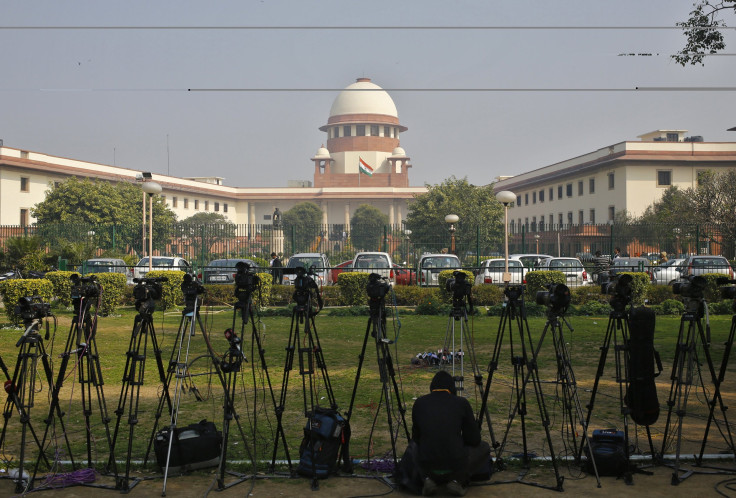Indian Court Stays Death Sentence Of Sisters Convicted Of Kidnapping And Killing Children

An Indian court has stayed the execution of two women convicted of murdering children that they kidnapped, and forced to beg and steal, citing the time it has taken for the legal system to carry out the death sentence. Renuka Shinde, 45, and her step-sister Seema Gavit, 39, were accused of kidnapping and killing children in the western state of Maharashtra between 1994 and 1996.
The sisters were convicted in 2001 of kidnapping 13 children from train stations, temples, fairs and gardens in the region, and of killing at least five of them. Before they were killed, the children were forced to join a gang run by the sisters where they were forced to beg, pick-pocket and rob. In India, where very few women have been given the death penalty, the Supreme Court of India upheld the sisters' death sentences in 2006, an Agence France-Presse, or AFP, report said.
A lawyer representing the sisters filed an appeal before the Mumbai High Court Tuesday to stay the death sentence on grounds that a 13-year-long delay in carrying out the sentence was excessive. The court admitted their petition and asked the state government of Maharashtra to submit its reply by Sept. 9, the day of the next hearing, AFP reported.
Shinde and Gavit reportedly killed some of their young victims by banging their heads against the walls or iron rods. The sisters reportedly carried out the killings on the behest of Anjanabai Gavit, their mother and employer, according to an earlier report by the Telegraph. Although initially accused of killing nine children, prosecutors were only able to prove the murder of five children, all between the ages of one and five years.
India's apex court, while upholding the death sentence in 2006, had stated that it could not find “any mitigating circumstances in favour of these women except for the fact they are women," and added that the nature of the crime and the planned sequence of kidnapping and murdering each child “demonstrated the depravity of mind” of the killers. In July 2014, President Pranab Mukherjee rejected an appeal by the sisters for clemency. The two authorities that can commute a death sentence in India are the president and the Supreme Court.
However, in a landmark ruling this year, the country's Supreme Court ruled that "inordinate and inexplicable" delays in carrying out executions are grounds for commuting death sentences. Indian courts only hand down a death sentence in the "rarest of rare cases."
Earlier in 2014, three men accused of being involved in two gang-rape cases were ordered to hang by a special court -- the first death sentence to be handed out for a sex offense after the law was toughened following the mass outrage that swept the country last year after the gang rape of a girl on a bus in Delhi in December 2012.
Only two hangings have taken place in India in the last two years. Mohammed Ajmal Qasab was executed in November 2012 for his role in the November 2008 terrorist attacks in Mumbai that left 164 dead and at least 308 wounded. In February 2013, Afzal Guru, a Kashmiri man, was hanged for his role in the 2001 attack on the Indian Parliament.
© Copyright IBTimes 2025. All rights reserved.





















